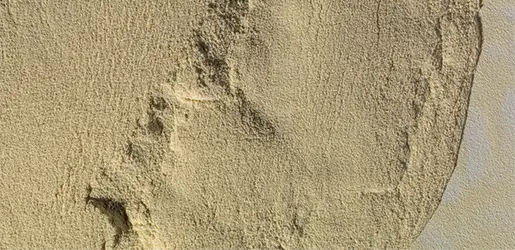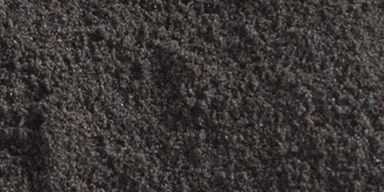Startseite » Materials » Plastics » PAEK Polyaryletherketones
PEEK materials belong to the PEAK polymer family and are chemical compounds with ether and ketone groups. Compared to other plastics, they have very high glass transition and melting temperatures. This makes them ideal for high-temperature applications in many different industries.
Advantages of laser sintering PEEK – material properties
PEEK plastics are semi-crystalline aromatic polyetherketones with excellent mechanical properties, even at high temperatures. They have a continuous operating temperature of up to 260 °C. They are also flame-retardant and have high chemical resistance, hydrolysis resistance, high stiffness and strength and excellent tribological properties. The properties of PEEK material are comparable to those of the high-performance polymer ULTEM™ Filament.
Which 3D printing PEEK material is the best choice?
For plastic components that are exposed to high mechanical loads and high temperatures at the same time, we work with two PEAK materials. The high-performance polymer PEKK-100 retains its excellent mechanical properties at temperatures up to 180 °C. The plastic PEKK-HT-23 is reinforced with carbon fibres and is even more robust and temperature-resistant. It is approved in accordance with standards for components for the interior design of trains.

Fields of application of 3D printing PEEK
PEEK polymers are ideal for all industrial applications in which a long service life is required. Laser sintering of PEEK is suitable, for example, for high-performance moulded parts such as bearing cages, gears or impellers in pumps and high-pressure systems, especially when they are used in aggressive media. Medical technology uses the biocompatible material for sterilisable medical devices or patient-specific implants. These can be manufactured from PEEK more economically than metal implants and do not cause any disturbing side effects such as weather sensitivity for patients. The aerospace industry also relies on the inherently flame-retardant material as a metal substitute for interior components or components in air conditioning systems.
In 2010, EOS made PEEK HP3, a high-performance polymer from the group of polyaryletherketones (PAEK), available for laser sintering production for the first time. This semi-crystalline, thermoplastic material was developed for use in the new high-temperature system. The laser-sintered parts achieve tensile strengths of up to 95 MPa and a modulus of elasticity of 4400 MPa. These values are up to 100 percent higher than those of the market-dominating materials PA 12 and PA 11. Depending on the area of application, the continuous operating temperature of EOS PEEK HP3 is between 180 °C (mechanically dynamic), 240 °C (mechanically static) and 260 °C (electrical) – values that were previously unattainable.
Due to this exceptional combination of properties, EOS PEEK HP3 is ideal for fulfilling the highest requirements in the medical, aerospace and motorsports sectors, for example. In medical applications, these properties make the material an ideal substitute for stainless steel and titanium. In aerospace and motorsports, where lightness and fire resistance are paramount, PEEK HP3 has become a suitable metal substitute.
Maximum installation space: 675 x 365 x 550 mm

NEW (still under development)
The high-performance polymer based on an unfilled PEKK shows its special capabilities at high operating temperatures in the range of 80–180 °C. It has an extremely high toughness while retaining its high strength and rigidity at the same time. PEKK therefore has similar properties to injection-moulded 35% fibreglass-filled polyamide 6, making it ideal as a replacement for small-batch applications.
Thanks to its excellent chemical and oil resistance, even at elevated operating temperatures, PEKK-100 is particularly suitable for the production of industrial and automotive parts. Its excellent insulation properties (high dielectric strength) in combination with its halogen-free flame retardant (UL94-V0) make PEKK-100 a popular material in the entire field of electronic and electric (E&E) applications. Due to its inherent flame protection, PEKK is also a sought-after substitute material for metal in aerospace and railway technology. Its abrasion resistance and sliding friction properties are interesting for a wide range of industrial applications.
This material is still being tested by the manufacturer and our company. We will be happy to inform you as soon as it has been approved for use.
Maximum installation space: 675 x 365 x 550 mm

This medium-grey high-performance plastic from the group of polyetherketoneketones (PEKK) consists of 23 % carbon fibres, which are encapsulated (compounded) in the rounded powder grains of the material. Compared to 3D-printed components with dry-mixed carbon fibres, components made of PEKK-HT-23 have almost isotropic physical properties. They are also resistant to chemicals and have a high melting point. Their inherently flame-retardant properties are comparable to those of ULTEM™ Filament.
The material is approved in accordance with DIN EN 45545-2:2016, requirement sets R1 and R24, for the construction of components in train interiors.
* ULTEM™ ist eine eingetragene Marke von SABIC oder seiner Tochtergesellschaften.

Would you like a personalised offer or advice?
Get in touch with us!

FKM is a pioneer in selective laser sintering (SLS) and selective laser melting (SLM) in Germany and Europe. Since 1994, we have been part of a revolutionary rethinking process in the industry. Where tool and mould making used to determine the design rules, additive manufacturing with SLS and SLM is now changing entire production processes.
Sign up for our newsletter and receive free innovation news about industrial 3D printing.
Sie haben Fragen?
Nehmen Sie zu uns Kontakt auf.
Do you have any questions?
Please get in touch with us.